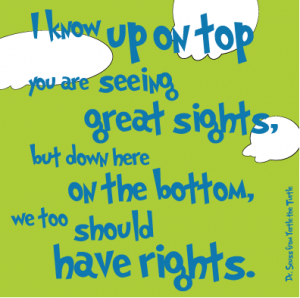Washington State Kappan: Winter 2015 Call For Manuscripts
Due September 15, 2014
Social Justice in Education: Diversity, Equity, Citizenship
Social justice in education remains crucial to American society and the development of diverse and well-educated citizenry. From issues such as civics and immigrant youth to equity and the transition from high school to college, what it means to support and advocate for social justice in classrooms, schools, communities, and the policy arena is much more than adding statements of tolerance to inherently inequitable systems and structures.
As Sensoy and DiAngelo assert, “Social justice education is not about serving the interests of political correctness. Every single measure of disparity in education is tied to group position — target vs. dominant. Special education and discipline referrals; math, science, and reading literacies; graduation and dropout/push-out rates; test scores, all of what is known as ‘the achievement gap’ are tied to race, class, and gender. This disparity is real. And to ameliorate such disparities and offer meaningful leadership in school contexts at all levels, we must attend to the real, to the concrete and active dimensions — not simply the slogans — of social justice” (2009, p. 348-350).
We invite articles that serve as a catalyst for exploring the real, concrete, active dimensions of social justice from a variety of perspectives. Those interested in submitting a manuscript may want to consider the following questions:
- In what ways are districts and schools working to support diverse student populations to gain access to programs and to succeed academically?
- How might issues of social justice be meaningfully integrated with university teacher education programs?
- What are examples of how social justice education is being implemented through instruction at the classroom level?
- ·In what ways are ESDs facilitating or supporting social justice initiatives, such as civics education and community-based learning, statewide?
- What connections can be made between current high-stakes assessment policies and social justice initiatives?
- What does social justice mean to students, parents, or school communities?
We are calling for theoretical/research articles, teacher-focused articles, and professional materials or book reviews on topics related to this theme. For additional information: https://journals.lib.washington.edu/index.php/wsk/announcement
For manuscript submission author guidelines: https://journals.lib.washington.edu/index.php/wsk/about/submissions – authorGuidelines
For past issues of Washington State Kappan, please go to: http://www.pdkwa.org/
If you have questions, please contact Antony Smith, editor: ansmith@uwb.edu
 Follow
Follow

